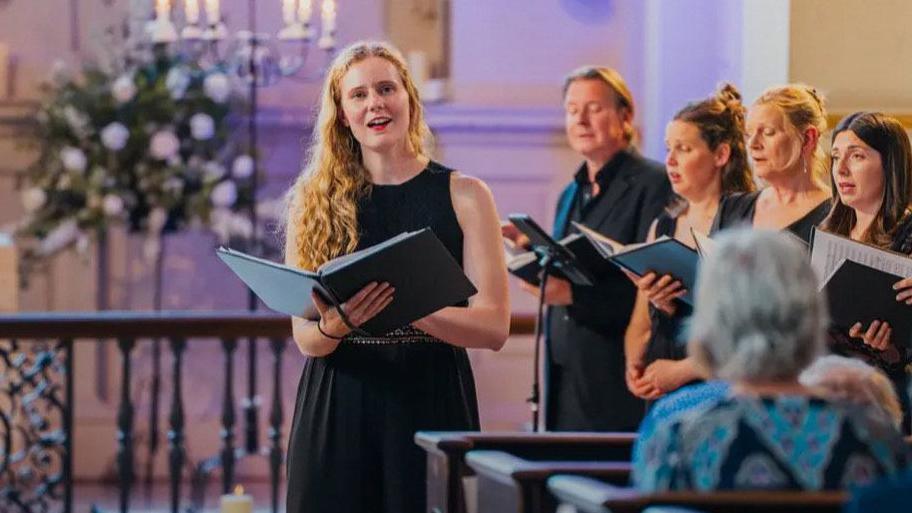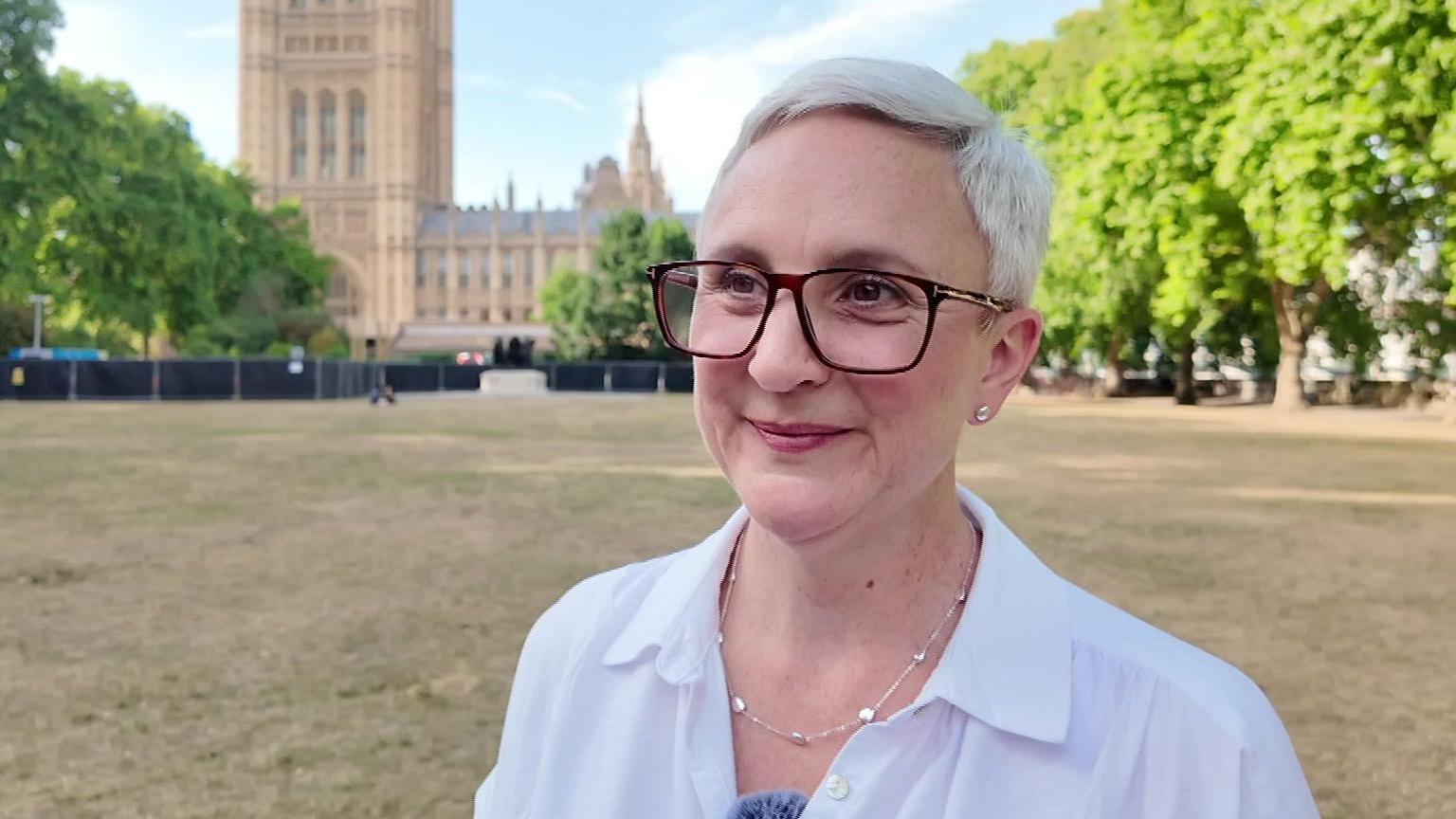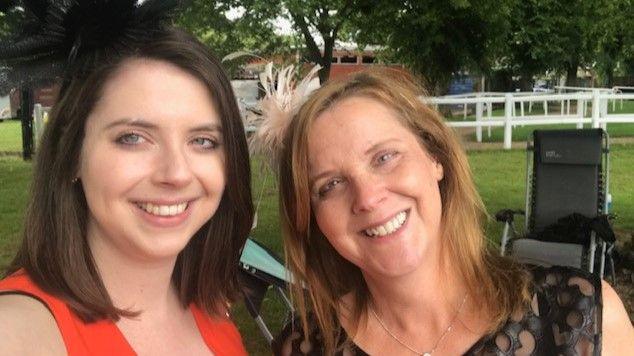Singer backs calls to end misogyny in music

Singer Lucy Cox said the industry needed to change its culture to be more inclusive of women
- Published
A classical soprano singer has said she was told she would have to "wait for somebody to get pregnant or die" before she could become successful.
Lucy Cox, 35, from Oxford, has called for the music industry to change its culture to be more inclusive of women.
She said misogyny and maternity pay for freelancers left her worried about starting a family.
The Women and Equalities Committee echoed her views in its recent report, Misogyny in Music: On Repeat, external, which made several recommendations to help the industry.
Ms Cox, now a mother, worked up until she was 37 weeks pregnant and returned to work after eight weeks.
"You're worried about losing form, you feel you have to keep performing to be seen," she said.
"Suddenly your income's fallen off a cliff."
The maternity allowance for freelance musicians meant Ms Cox would have only received about £9,000 for the year, which she said was "unsustainable".

Ms Cox worked up until she was 37 weeks pregnant and returned to work after eight weeks
Ms Cox also said she faced sexual harassment, along with many women she worked with.
"It had been normalised at the time," she said.
"We can't rely on employers to provide things that freelance women need without a law in place."
Alex Brewer, Liberal Democrat MP for North Hampshire, was a co-signatory of the Parliamentary committee's report.
"We need a proper industry body with resources and teeth," she said.
"We need to get rid of non-disclosure agreements for sexual harassment and sexual discrimination; we need to equalize out maternity pay so freelancers have the same rights as employees."
Ms Brewer said starting with "small, legislative changes" was the beginning of seeing a larger cultural change in the industry.

Alex Brewer MP said hearing some women's testimonies to the committee was hard to hear
The latest report in June 2025 is the third report by the committee, and it is hoped the government will respond by September.
The Musicians Union (MU), the trade union for musicians, including freelancers, said it "support all recommendations".
"We hope that we can get the backing of the government to move things forward. Let's end misogyny in music," Paul Burrows, the unions' east and south east regional secretary said.
'Challenging bad behaviour'
Ms Cox said for musicians putting "your head above the parapet" could be career ending, due to the small industry.
"You don't want to be seen as a trouble maker – as a freelancer there's no reason they have to call you back," she said.
The committee and the MU are hoping that the formation of the Creative Industries Independent Standard Authority (CIISA) will help.
Though Lucy welcomes the "advice and advocacy" the new body could offer, she said it was the culture that needed to change.
"Aside from legislation I think conversations need to be had in the industry about what's acceptable," she said.
"We need to be braver about challenging bad behaviour and reporting it."
